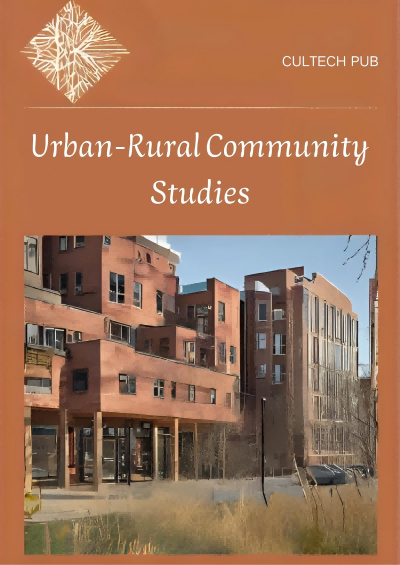About the Journal

Urban-Rural Community Studies (eISSN: 3120-3868, URCS) is an international, interdisciplinary open-access journal committed to advancing transformative research on the dynamic interactions and co-evolution of urban and rural communities. By emphasizing the symbiotic relationships between built environments and natural landscapes, URCS serves as a premier scholarly forum for disseminating cutting-edge research across urban planning, rural sociology, human geography, community development, and spatial policy analysis. The journal bridges academia, policymaking, and grassroots practice, engaging researchers, planners, and community leaders in developing integrated solutions for sustainable regional development.
URCS seeks to illuminate the complex interdependencies between urban and rural systems, addressing multifaceted challenges at the interface of socioeconomic transformation, environmental change, and spatial justice. Through rigorous peer-reviewed publications, the journal advances innovative frameworks for understanding community resilience, equitable resource allocation, and culturally sensitive development strategies. These efforts aim to address critical global priorities including climate adaptation, digital inclusion, food security, and balanced regional growth.
Core Research Domains
The journal prioritizes collaborative research and actionable insights across the following areas:
・Spatial Development & Planning
-
Peri-urban transformation dynamics
-
Infrastructure connectivity and service delivery
-
Land-use transitions and governance
・Community Resilience & Livelihoods
-
Rural-urban migration impacts
-
Informal settlement integration
-
Indigenous knowledge systems
・Environmental & Resource Flows
-
Ecosystem service exchanges
-
Circular economy applications
-
Climate adaptation pathways
・Digital & Technological Integration
-
Smart village-urban linkages
-
Digital divide interventions
-
ICT-enabled community development
・Cultural & Social Dynamics
-
Hybrid community identities
-
Intergenerational knowledge transfer
-
Creative placemaking strategies
・Policy & Governance Innovations
-
Decentralized development models
-
Cross-sectoral policy coordination
-
Participatory planning methodologies
Rapid Publication
The manuscript processing cycle is approximately 12 weeks from submission to acceptance.
General Information
eISSN: 3120-3868
1st Year Published: 2025
Frequency: Semiannual
Issues Per Year: 2
Country / Region: Malaysia
Primary Language: English
Abstracted/indexed in
![]()
![]()
![]()
![]()

![]()
![]()
